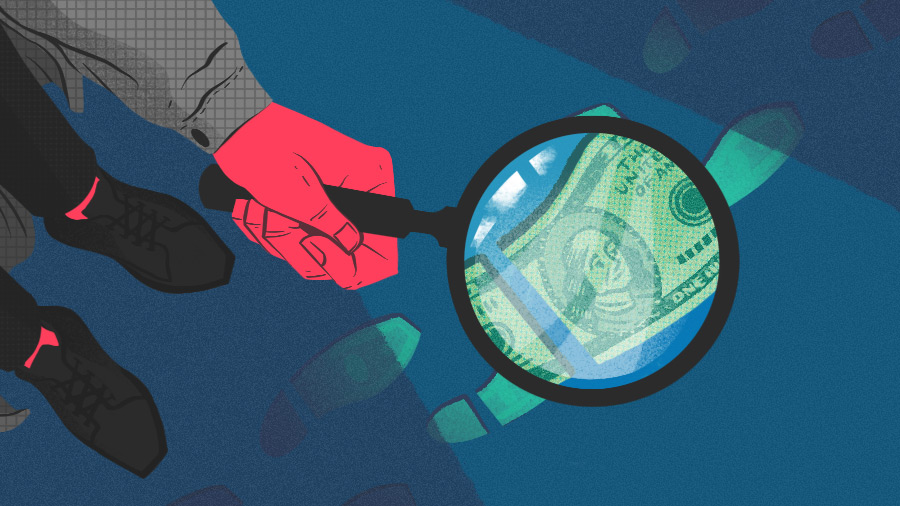For founders and investors in startups focused on addiction recovery, their attraction to the space often begins with a personal story.
Subscribe to the Crunchbase Daily
Stephen Hays, a mental health-focused venture investor, attributes his motivation to find and fund new treatment approaches in part to his own struggles with alcoholism. Years of failed attempts at sobriety culminated in an in-patient rehab stay a few years ago that left him physically and mentally healthier but financially devastated.
Now, as he searches for promising startups for his investment syndicate What If Ventures, Hays sees a lot of founders sharing similar histories. While struggles around addiction are nothing new, he points to a more recent shift in peoples’ willingness to both talk about their experiences and seek out better options.
“What I think has happened is the normalization of the conversation around addiction has freed founders who struggled with it themselves to go build in that space,” Hays says.
Diminished stigma is only one part of the picture. Add in sharp growth in adoption of telehealth technologies, along with a continually improving body of evidence around effective treatment approaches, and you have a sort of perfect storm for startup funding around addiction.
The numbers bear out that notion. A Crunchbase survey found that venture-backed companies working on treatments and service offerings around addiction have raised well over $1 billion in funding over the years.
More recently, we’re seeing a high amount of seed and early stage activity. A Crunchbase sample list of U.S. companies, for instance, found 21 upstarts in the addiction space, most seed or early stage, that raised rounds in the past couple of years.
Meet the startups
More heavily-funded startups include Pear Therapeutics, a developer of digital therapeutics for substance abuse and other disorders, along with Groups Recover Together and Bicycle Health, two telehealth-focused providers of medication-assisted treatment for opioid addiction. Beyond the top fundraisers, a plethora of seed stage companies are also scaling up.
There’s not a standard template for these startups. Some offer treatments for multiple categories of addiction, while others focus on one area, such as alcohol or opioids.
However, we do see common themes. One is that multiple startups are offering several kinds of treatment, including therapy, community support and prescription drugs to diminish cravings or alleviate withdrawal symptoms. A preponderance of startups are also pitching offerings marketed as affordable and accessible to a broad portion of the population, with a heavy reliance on telehealth.
“Most people don’t get access to evidence-based treatment for addiction,” said Yusuf Sherwani MD, the co-founder and CEO of startup Quit Genius. “And the challenge when you don’t treat people with chronic conditions is the cost increases exponentially over time.”
Quit Genius has raised $14.7 million to address these issues, with each round “massively oversubscribed,” per Sherwani. The startup pitches itself to employers as a digital clinic for multiple addictions. It’s offered as a benefit to employees who may number among the one in four Americans who battle a substance addiction.
A common observation among founders in the space is that while certain treatment approaches have been shown to be more effective, there is no one-size-fits-all solution.
“Yeah, you can go to AA. But that’s not for everybody,” said Justin Geller, co-founder and chief operating officer of Monument, a startup focused on helping people overcome alcoholism and problem drinking. The New York-based company provides free access to its online support community and also sells plans offering therapy and medical tele-consultations.
Varied mix of founders
The addiction startup founder population is a mix of healthcare professionals with deep experience in the space and entrepreneurial types from more varied backgrounds drawn to an area where they see opportunity for impact.
Monument CEO and co-founder Mike Russell, a serial startup entrepreneur along with Geller, points to his longtime binge drinking habit as an impetus for launching the company. He managed to quit with a combination of medication, therapy and peer support — an approach he wants to extend to others.
Holly Whitaker, founder and CEO of Tempest, a digital recovery program for drinkers, writes about her battles with drinking, pot, cigarettes and binge eating. Nick Gulino, founder of addiction treatment-focused Y Combinator startup Recover, says he grew up watching his own family and friends struggle with addiction.
Quit Genius’s Sherwani says one of his driving motivations is to reduce the stigma associated with addiction as well as offer privacy-protected options for treatment, and in so doing enable more people to get help
“We need to educate people that addiction is a chronic disease, it’s not a moral failing,” he said.
Jeff De Flavio MD, founder of Groups Recover, writes about a similar motivation, noting he “was drawn to addiction medicine because structural discrimination and bias have stifled the most effective types of treatment.” As a result, the best of modern medical science has traditionally not been available to those most in need.
Past and future exits
As addiction-focused startups scale up at the early stages, several more mature venture-backed companies have already gone public or sold to acquirers.
Probably the most and highest profile is Munich-based ATAI Life Sciences, a company backed by billionaire Peter Thiel that is known for its research into psychedelics-based treatments for mental illness. The startup, which went public last week and recently secured a market capitalization around $2.8 billion, is looking at applications for opioid addiction, among other ailments.
A couple months earlier, New York-based MindMed, another psychedelic biotech company developing medicines and therapies to address addiction and mental illness, began trading on Nasdaq, securing a recent valuation around $800 million.
We haven’t seen a major exit yet by one of the numerous venture-backed companies working at the intersection of addiction treatment and telehealth. But it’s early innings yet. Most of the companies on our list are early stage.
Still, surveying the broad and promising mix of recently funded startups in the addiction space, it’s easy to imagine that at least some of them will grow into something really big.
In the long run, of course, the greatest hope isn’t to make massive exits so much as to reduce the travails of addiction itself, helping alleviate suffering around a condition that affects untold millions. That’s the real value creation promise.
Illustration: Dom Guzman

Stay up to date with recent funding rounds, acquisitions, and more with the Crunchbase Daily.





![Illustration of stopwatch - AI [Dom Guzman]](https://news.crunchbase.com/wp-content/uploads/Halftime-AI-1-300x168.jpg)




67.1K Followers